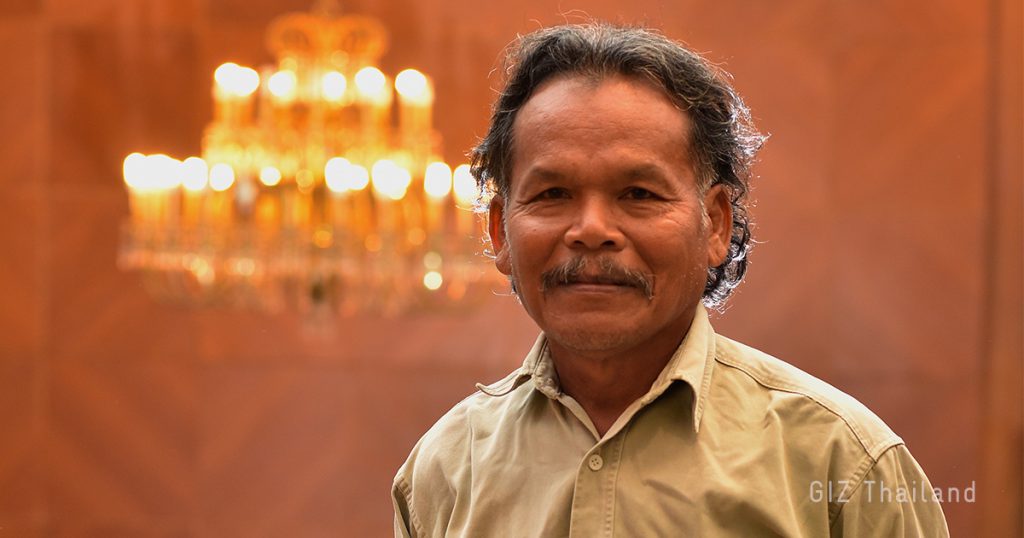Kriangkrai Chanpheng encourages his fellow farmers to shift towards low-emission rice production to fight against global warming.
Speaking to about 300 farmers and government officials in the northeastern province of Khon Kaen, Thailand, Mr. Kriangkrai says it is high time for Thai rice farmers to be more responsible and take climate action.
“First of all, we (farmers) need to realize how great the danger of climate change is. We grow rice. We depend on nature. We have to care more about environment,” says the 60-year-old farmer.

Mr. Kriangkrai is a former businessman and now a rice grower from northeastern province of Ubon Ratchathani.
He is a participating farmer of the Better Rice Initiative Asia (BRIA) project since its first phase in 2017.
Mr. Kriangkrai was invited as a guest speaker during a panel discussion entitled: “Rice Production Development under Climate Change” at the event held on 14 December 2018 in Khon Kaen, Thailand.
He told a panel discussion that laser land leveling is one such proven mitigation technology that helps reduce the amount of time and volume of water needed for rice plantation.
To cut greenhouse gas emissions, he pointed out that farmers must stop burning off straw and rice stubble as it intensifies global warming.
“Farmers must know that we can reduce global warming.”

The second awareness raising event of the Thai German Climate Program (TGCP) – Agriculture project was jointly supported by Thai Rice Department and Federal Ministry for the Environment, Nature Conservation, Building and Nuclear Safety (BMUB) implemented by German International Organization (GIZ).
The first event was held in Autthaya province in October 2018.
During the panel discussion, Narawadee Modenuch from Olam International, a leading agri-business operating in 70 countries, shed lights on trends in the global rice consumption.
“Besides good taste and cheap price, the global consumers start caring about food safety and whether or not the cultivation is environmentally friendly,” Ms. Narawadee told the audience.
While Suriyan Vichitlekarn, GIZ’s deputy cluster coordinator for agriculture and food reassured supports from the German government and stressed that GIZ will continue working as a facilitator to guarantee fair price and access to mitigation technology for farmers.

